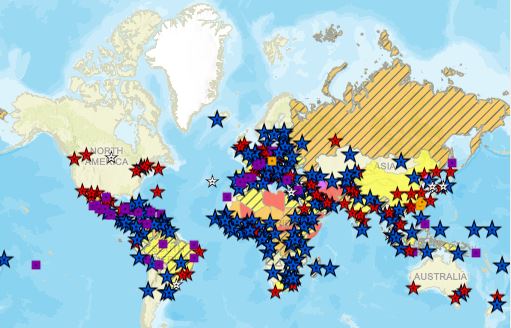
While I generally like to accentuate the positive, it has to be conceded that travel is not without its dangers.
I was reminded of this by a bizarre and frightening story from Mexico, about people in a popular resort town being beaten, stripped naked and tied to lamposts.
Puerto Vallarta isn’t the only place in the world where you should be concerned about your personal safety.
Just this year we’ve seen a grisly beheading of an Irish woman in India, and reports of rapes of tourists in India, Croatia, South Africa, England, the Dominican Republic, Indonesia, Senegal, New Zealand and many other countries.
The Australian government says tourists should exercise a high degree of caution when visiting Mexico “because of high levels of violent crime and drug-related violence”. It advises: “Pay close attention to your personal security at all times. Monitor the media and other sources about possible new security risks.”
While rape and other serious crime can occur anywhere, India has a particularly bad reputation. The UK government has warned: “British women have been the victims of sexual assault in Goa, Delhi, Bangalore and Rajasthan and women travellers often receive unwanted attention in the form of verbal and physical harassment by individuals or groups of men.
“Serious sexual attacks involving Polish, German and Danish women travellers were reported in 2014. In January 2015, a Japanese woman was kidnapped and sexually assaulted close to Bodh Gaya and a Russian woman was seriously assaulted by an auto-rickshaw driver in the Vasant Kunj area of New Delhi. In July 2016 an Israeli national was sexually assaulted by a number of men while travelling in Manali.”
The US State Department offers a colour-coded map about what it perceives to be threats to Americans around the world.
Of course, tourists have also been the perpetrators of serious crimes including rape, often involving children. This story makes disturbing reading.
It is a sad fact that some places are more dangerous than others. Some are best left unvisited, at least for now. Heed government warnings such as those issued by Australia, the US and the UK, and always make your personal safety a priority when you travel.
Bear in mind that most advice is generally applicable, but some applies particularly to nationals of certain countries. You can be treated differently abroad depending on your country of origin, your gender, your sexuality, your religion or your political views. Or you can just be in the wrong place at the wrong time.
Research your destination before you go, and know what can happen.
